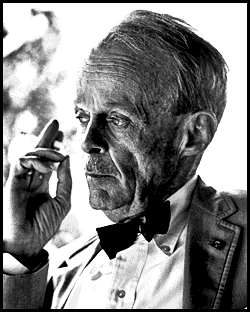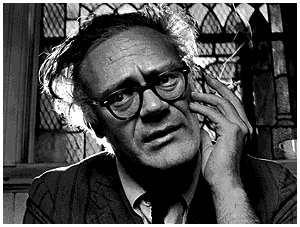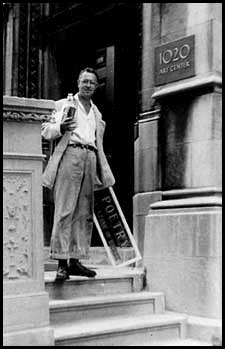Elizabeth Hun Schmidt, Editor
(Norton)

That someone as disreputable as a Real Poet (vide Charles Bukowski, Alan Ginsburg, Pete Winslow) should have an office in the august Jefferson Building in Washington, D. C., along with $35,000 a year is not unlike, as Mark Morford has it, putting feta cheese in the freezer: it gets crumbly, stinky, goes bad.
This anthology is, then, more or less a rectal thermometer. It tells you about the fevers and pains lurking in the systems of the run-of-the-mill poetasters of America ... the condition of the state of national aesthetics by those who run the show. One of the better poets, William Carlos Williams, was duly appointed to serve as Poet Laureate in 1952, and was subsequently pilloried for his rather mild political views. He was dying of heart disease; the godzillas in United States Senate stabbed him so cruelly that he was not able to serve, up and died. As Williams wrote, appropriately, "For verse to be alive, it must have infused in it ... some tincture of disestablishment, something in the nature of an impalpable revolution, an ethereal reversal."

naked, marble beauty glows in bright light..."
- He towers and shines before us, perfect in body
fair of face --- perfect in spirit too...
Time cannot smudge his form nor erase his story.
But there are a few jewels to be plucked from the forehead of the toad in the Anthology. We can revisit the better poets who struck it lucky by getting elected: Rita Dove, Elizabeth Bishop, Howard Nemerov, Conrad Aiken, and James Dickie. The last not only writes verse on making love in a '34 Ford, people dying in the war ("Of a brain killed early that morning,") adultery ("you who have sealed your womb / With a ring of convulsive rubber,") --- but in "The Sheep Child," contemplates the saving graces of rural bestiality:
- Farm boys wild to couple
With anything with soft-wooded trees
With mounds of earth mounds
Of pinestraw will keep themselves off
animals by legends of their own:...
in a museum in Atlanta
Way back in a corner somewhere
There's this thing that's only half
Sheep like a wooly baby
Pickled in alcohol
In brief introductions, this volume reviews the lives of forty-three laureates, and offers a dozen or so examples of their best (or in Van Duyn's case, possibly, their worst). It also give us a chance to discover some poets we may have forgotten, like the cheerfully sardonic Karl Shapiro and his "Fly,"
- O hideous little bat, the size of snot,
With polyhedral eye and shabby clothes,
To populate the stinking car you walk
The promontory of the dead man's nose,
Climb with the fine leg of a Duncan-Phyfe
The smoking mountains of my food
And in a comic mood
In mid-air take to bed a wife.

But at the same time, we should be grateful that the likes of Conrad Aiken, Charles Simic, Robert Haas, and Howard Nemerov made it here, with the latter commenting cunningly in his time in office,
- Oh, you want praise and recognition and above all money. But if that was your true motive, you would have done something else. All this fame and honor is a very nice thing, as long as you don't believe it.